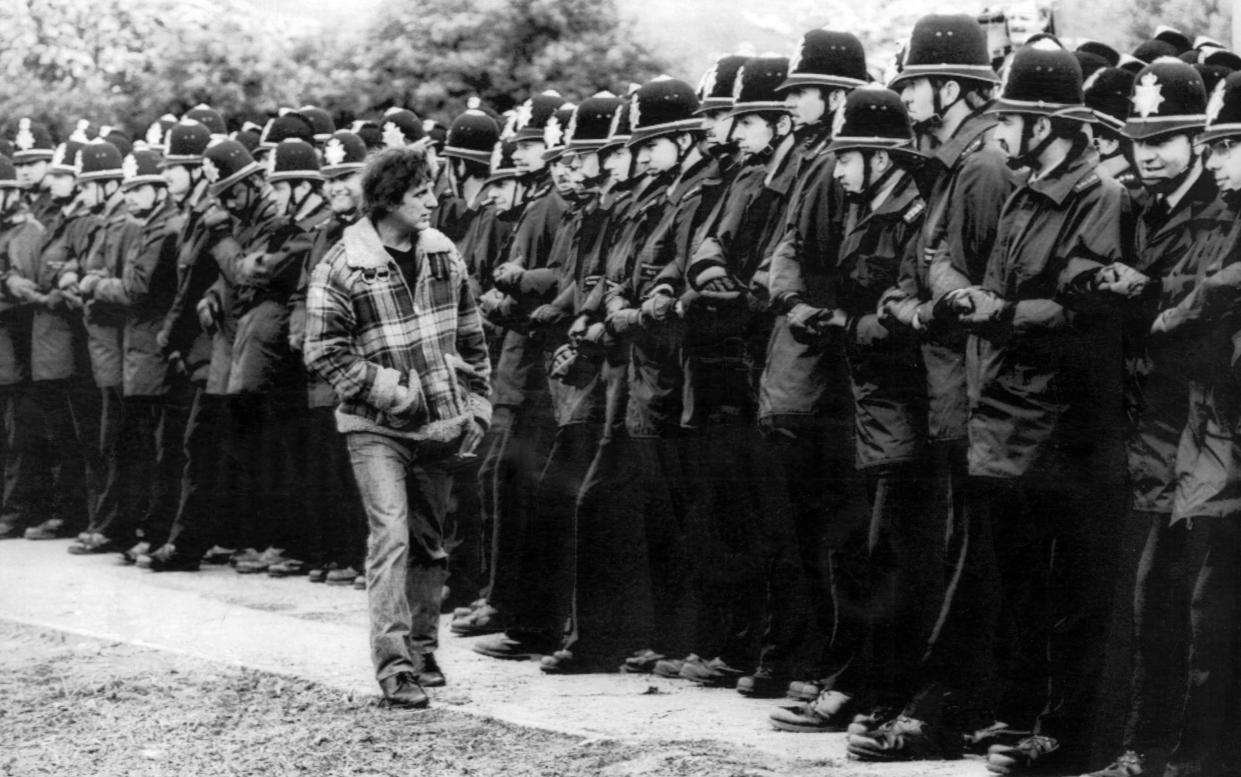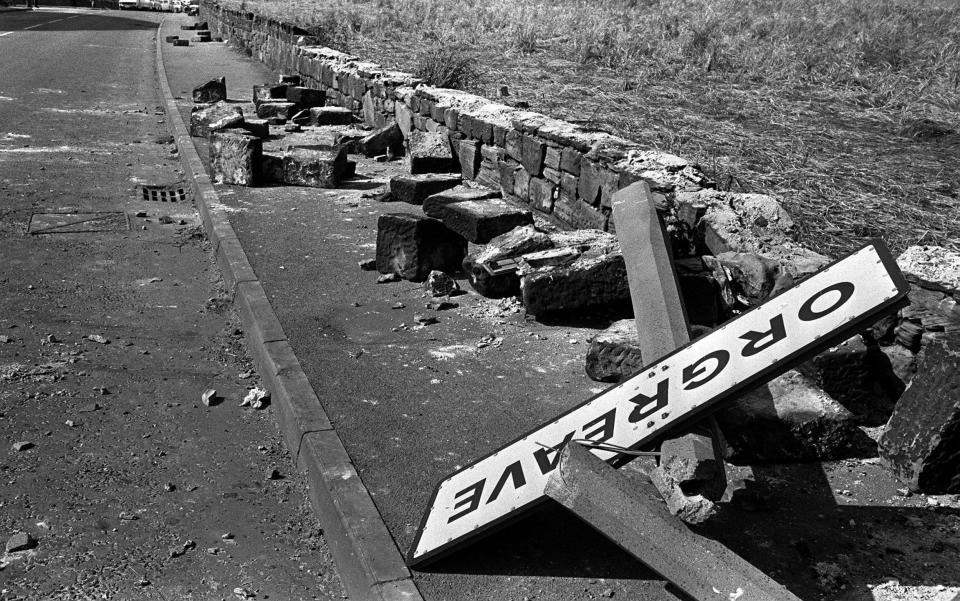Miners’ Strike 1984: The Battle for Britain, review: our miners suffered, whether they worked or not

- Oops!Something went wrong.Please try again later.
I was a child during the Miners’ Strike, and found it confusing. On the news were scenes of miners clashing with police, their families struggling by without money. My grandfather was by then retired but formerly a proud Co Durham miner. Yet his fiercest anger was directed not at Margaret Thatcher, or the officers dealing out truncheon blows, but at the miners’ champion, Arthur Scargill. How could that be?
Of course, I grew up to learn that it wasn’t a simple case of two sides. Miners’ Strike 1984: The Battle for Britain (Channel 4) details the schism between Scargill’s men and those who, in the absence of a national ballot, wanted to go to work. This is a well-researched documentary, featuring miners who were in news footage from the time. Both sides are given equal weight.
It is split into three episodes. The first, Community, maps the bitter divisions in Shirebrook, Derbyshire. The BBC’s excellent 2022 drama, Sherwood, was set somewhere similar. Forty years on, positions are as fixed as ever: “If you cross a picket line,” says one man firmly, “you’re a scab.”
Working miners faced hatred. Miners bussed through the picket lines wore bags over their heads to hide their faces, or crash helmets in case of missiles. Sometimes it was women and children screaming abuse as they passed. Striking miners faced the police. In Derbyshire, officers wielded batons but that was nothing compared to the “Battle of Orgreave” in South Yorkshire, subject of episode two.

Mostly this is told by the miners arrested that day and the lawyers – inevitably, it’s Michael Mansfield QC and Gareth Peirce – who defended them. This episode relies on their testimonies and on powerful footage shot at the time, showing mounted police charges and violent scenes. The third episode brings a change of pace as it details the involvement of David Hart, a strange-sounding figure who appointed himself as adviser to the PM on how to end the strikes.
Former aides to Mrs Thatcher defend her position, but the film is very much on the miners’ side. Some loved being down the pit; others described it as hard, filthy work. But it was work. “The working man doesn’t want vast amounts of money. The working man’s not idle,” says a former NUM delegate. “All he wants to do is go to work, have enough money to go out and have a drink, for the wife and kids to be all right, to go away for a couple of weeks in the summer.” In former mining communities, those days are gone.

